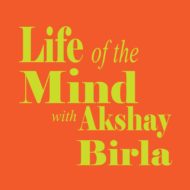Rohit Chopra is the co-host of the podcast India Explained and Associate Professor at Santa Clara University. We talk about journalism in India and it’s evolution from the days of Doordarshan to the cornucopia of (mostly bad) options available today. Through our conversation I was introduced or reintroduced to a number of people and bodies of work that I either didn’t know about or don’t spend enough time with.
For example, Ashis Nandy, a political psychologist whose work seems very interesting if the titles of his book are anything to go by: The Intimate Enemy: Loss and Recovery of Self Under Colonialism; Regimes of Narcissism, Regimes of Despair; Traditions, Tyranny and Utopias: Essays in the Politics of Awareness. One of these might find a place on my reading list for 2019. Similarly, Palagummi Sainath, has done extensive reporting from rural India and whose work I’m curious to explore more. Particularly, Everybody Loves a Good Drought: Stories from India’s Poorest Districts. Urvashi Butalia runs a feminist publishing house in India and whose Poster Women: A Visual History of the Women’s Movement in India I just ordered. The political magazine Economic and Political Weekly, for example, provides a deep and fascinating coverage of India, even though I can rarely find anything I agree with its commentary on.
Rohit’s own book, Technology and Nationalism in India, might be too heavy a read for me but I’m curious to read the upcoming and more accessible books.
This is a fairly left-of-center reading list and I’m looking to balance it out with someone interesting that’s slightly to the right-of-center. Got any suggestions? Send them my way!
Podcast: Play in new window | Download
Subscribe:
